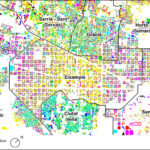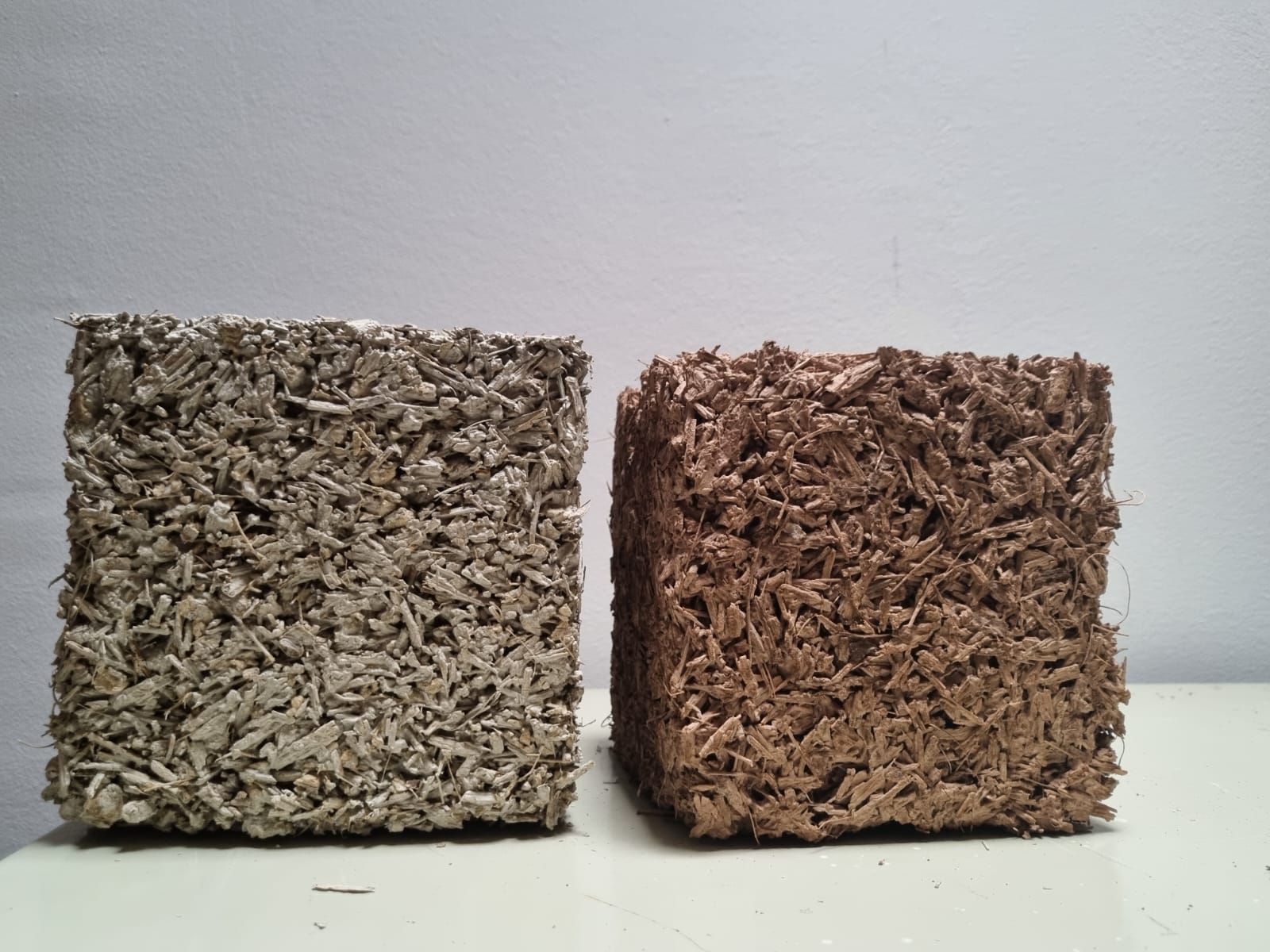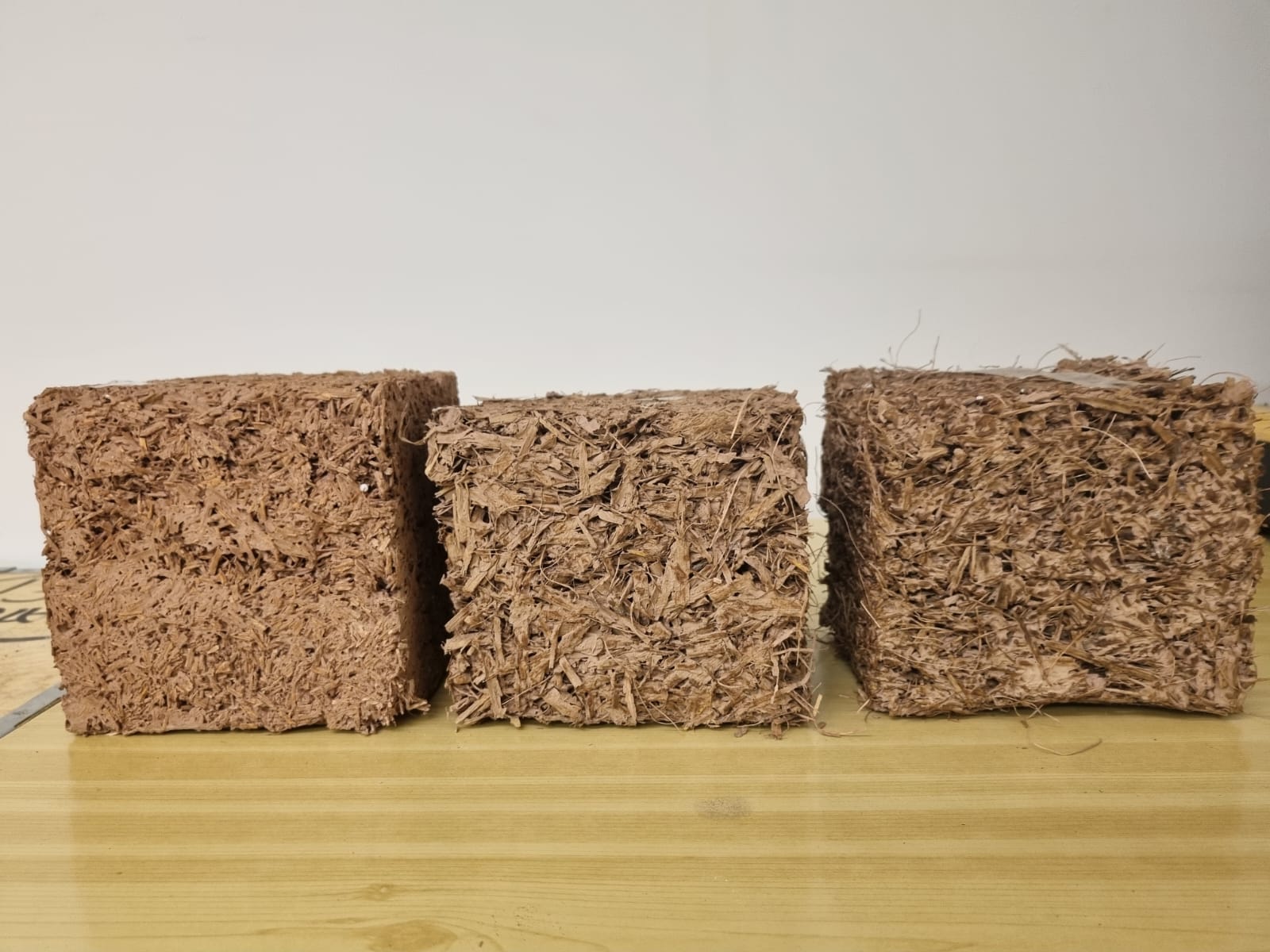
An interactive map to identify and assess the vulnerability of Barcelona’s housing to extreme heat
October 14, 2025
SATE-VEG: A system for energy renovation of buildings that helps reduce the urban heat island effect
October 27, 202522/10/2025
A research team from the Interdisciplinary Group on Building Science and Technology (GICITED) at the Universitat Politècnica de Catalunya – BarcelonaTech (UPC) is leading the BioSAFE project, which aims to develop sustainable building envelopes —mainly façades— designed according to sustainability, comfort and safety criteria, with particular attention to their acoustic behaviour and fire performance.
The BioSAFE project focuses on the use of renewable-based materials —such as timber, bamboo and agricultural by-products— to design façades and other construction elements that reduce the environmental impact of the building sector. BioSAFE builds on the advances achieved in the SBES - Sustainable solutions for building envelopes project (BIA2017-88401-R), extending its scope towards improving safety and comfort in buildings through natural and innovative solutions.
The project is structured around three main research lines. Firstly, the acoustic properties of different plant-based biomaterials are analysed, with the aim of optimising their formulation and manufacturing processes, both for low-density sound-absorbing materials and lightweight medium-density composites.
Secondly, the project tackles the improvement of fire behaviour in lignocellulosic materials by developing natural flame retardants as an alternative to potentially toxic synthetic compounds.
Finally, the third line combines both acoustic and fire-resistance aspects in the design of multifunctional façade elements capable of limiting fire spread while improving sound absorption and reducing urban reverberation.
The modification of natural raw materials to obtain the desired flame retardants will be carried out at laboratory scale. These retardants will subsequently be incorporated into bamboo and timber samples through an autoclave process combining vacuum and pressure cycles to ensure optimal impregnation of the material.
Regarding acoustic characterisation, this will include both laboratory testing and in situ measurements. Laboratory tests will focus on the analysis of low- and medium-density bio-based materials, in order to assess their acoustic behaviour and optimise their formulation.
Impact
The results of the BioSAFE project will contribute to the development of new construction solutions that combine safety, comfort and sustainability, supporting the sector’s transition towards low-carbon building. Furthermore, the research advances in natural flame retardants and plant-based materials will provide knowledge applicable both to the construction materials industry and to sustainable refurbishment projects. In the medium term, these innovations may lead to safer and more environmentally friendly products entering the market, improving the acoustic quality and fire safety of buildings while fostering more comfortable and sustainable urban environments.
Budget and Funding
The BioSAFE project (PID2020-117530RB-I00) is funded by the Spanish Ministry of Science and Innovation under the State Plan for Scientific, Technical and Innovation Research, with a total budget of €175,087. The project duration is four and a half years (September 2021 – February 2026).


Related Projects
- The Visualisation, Virtual Reality and Graphic Interaction Research Group (ViRVIG) at the Universitat Politècnica de Catalunya - BarcelonaTech (UPC) has participated in the XR4ED project, an initiative that connects the educational technology (EdTech) and Extended Reality (XR) sectors, with the aim of transforming learning and training across Europe.
- The inLab FIB at the UPC has collaborated with Lizcore® for the development of a proof of concept based on artificial intelligence to improve safety in climbing with autobelay devices. The system allows the automatic and accurate detection of risk situations before starting a route.
- Researchers from the Centre for Image and Multimedia Technology of the UPC (CITM) and from the DiCode research group (Digital Culture and Creative Technologies Research Group) of the Universitat Politècnica de Catalunya – BarcelonaTech (UPC) have worked on the project The Eyes of History, an initiative of the Catalan Agency for Cultural Heritage that offers an immersive view of Catalan cultural heritage. It is especially aimed at the first and second cycles of secondary education and was created to bring heritage into the classroom. Its goal is to bring the history and monuments of Catalonia closer in a vivid and innovative way, using tools such as virtual reality and new museographic narratives.
- City and Play is a social action project coordinated by researchers from the Centre for Image and Multimedia Technology (CITM) and the DiCode research group (Digital Culture and Creative Technologies Research Group) of the Universitat Politècnica de Catalunya – BarcelonaTech (UPC), the Universitat Oberta de Catalunya (UOC) and the University of Barcelona (UB), and funded by Barcelona City Council. The aim of the project is to promote civic competences and reflection on the urban environment among adolescents through the creation of an open framework that uses methodologies based on play, co-creation and storytelling.




